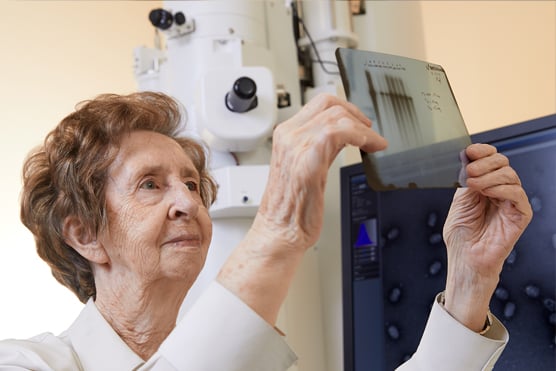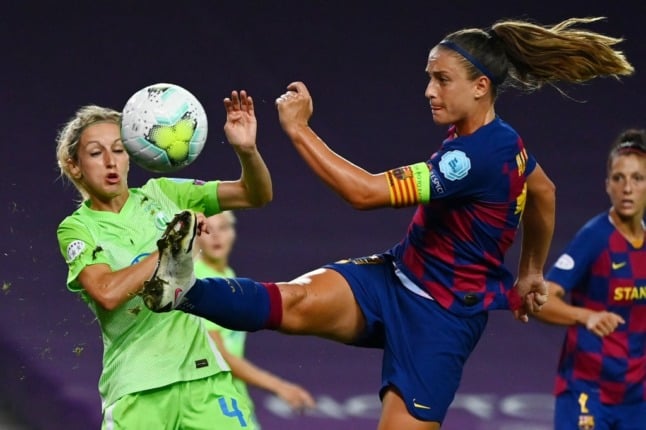The 80-year-old from Asturias in northern Spain, defied the traditional role of women in Franco's Spain to become one of the leading molecular biologists in Spain and a pioneering female role model.
She won the presitigious life time achievement European Inventor Award 2019 in June.
Margarita Salas Falgueras, who was given the title of 1st Marquise of Canero, invented a faster, simpler and more reliable way to replicate trace amounts of DNA into quantities large enough for full genomic testing. Her invention based on phi29 DNA polymerase is now used widely in oncology, forensics and archaeology.
“DNA testing brings valuable new evidence to fields ranging from the life sciences to law enforcement. But the technique requires sizeable volumes of genetic material to yield trustworthy results,” explained the European Patent Office, announcing the prize.
“Until the 1980s, techniques such as the polymerase chain reaction, a molecular biology method to copy specific DNA segments, were used. These were slow and introduced mistakes in every few thousand DNA base pairs, making them unsuitable for application outside of the research laboratory.
“Margarita Salas Falgueras led the breakthroughs that have since made DNA testing fast, reliable and used in a wide range of applications,” the statement said.
“The technique she invented is used today in medical research to study microbes that cannot be cultured in the laboratory. It has shed light on the earliest stages of embryonic development and allows oncologists to zoom in on small sub-populations of cells that could give rise to tumours.”
Patents filed by Salas have led to the commercialisation of user-friendly DNA-amplification kits. She filed her initial patent through the Spanish National Research Council (CSIC) and it remains the most profitable patent ever filed by the CSIC. It accounted for more than half the organisation's royalties between 2003 and 2009, returning millions in investment to publicly funded research.
Salas, who is now an Honorary Professor at CSIC, started her career in the US-based laboratory of Nobel-prize winner Severo Ochoa. She returned to her native Spain in 1967 to establish the country's first research group in the field of molecular genetics.
Despite financial limitations and lingering gender prejudice, Salas moulded her team into a world class and highly profitable public research centre. In addition to her role as a scientific pioneer, she is also a dedicated lecturer, having taught molecular biology at Madrid's Complutense University for 24 years.
Even in her 80th year, she continued to go to the laboratory every day.
What a hero.
Tributes flooded in with news of her passing, led by Spanish science minister Pedro Duque, a former astronaut.
Nos ha dejado Margarita Salas, una de las científicas españolas más brillantes de la historia. Una mujer pionera, clave en los grandes avances de la bioquímica y la biología molecular que han propiciado el progreso de la humanidad. Un referente que echaremos mucho de menos. pic.twitter.com/YsVySsrxhP
— Pedro Duque (@astro_duque) November 7, 2019
“Margarita Salas has left us, one of the most brilliant Spanish scientists in history. A pioneering woman, key in the great advances of biochemistry and molecular biology that have led to the progress of humanity. A leader who will be missed so much,” he wrote.
READ MORE: Why this 80-year-old marquise is Spain's most inspiring woman and everyone should know her name




 Please whitelist us to continue reading.
Please whitelist us to continue reading.
Member comments